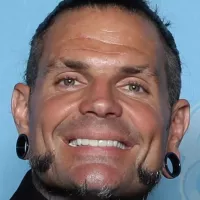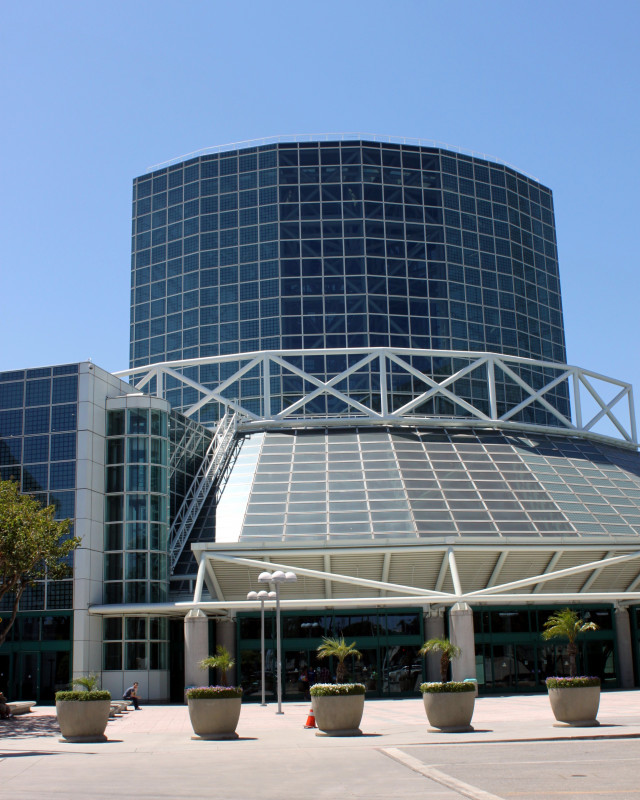E3 was a premier trade show for the video game industry, organized by the Entertainment Software Association (ESA). Held mainly in Los Angeles from 1995 to 2019, with a final virtual event in 2021, it served as a platform for developers, publishers, hardware manufacturers, and other industry professionals. E3 facilitated the showcasing of upcoming games, hardware, and merchandise to the press. Throughout its run, E3 maintained its reputation as the largest and most important annual gaming expo globally.
1991: Sega's Dissatisfaction with CES
In 1991, Sega experienced poor treatment at CES, including being placed in a leaky tent, leading to their departure from the show and contributing to the rise of E3.
1993: Congressional Attention on Ratings
In 1993, the US Congress turned its attention to the video game industry's lack of a rating system, prompting the formation of the IDSA.
1994: Formation of IDSA
The Interactive Digital Software Association (IDSA) was formed in 1994 to address concerns about the lack of a video game rating system.
1995: First E3 and Console War Impact
The first E3 in 1995 saw major console reveals, including Sega Saturn and Sony PlayStation, with Sony's pricing strategy impacting the console war.
1995: E3's Inception
The first Electronic Entertainment Expo (E3) took place in 1995 in Los Angeles, becoming a major event for the video game industry.
1997: E3 Moves to Atlanta
E3 was held in Atlanta in 1997 due to negotiation issues for the Los Angeles Convention Center.
1998: E3 Remains in Atlanta
E3 was again held in Atlanta in 1998, still due to venue issues in Los Angeles.
1999: E3 Returns to Los Angeles
E3 returned to Los Angeles in 1999 after two years in Atlanta, with attendance continuing to grow.
2003: IDSA Becomes ESA
The IDSA transitioned into the Entertainment Software Association (ESA) in 2003.
2006: Concerns Over E3 Costs and Attendees
Following the 2006 event, concerns arose about the high costs for exhibitors and the increasing number of non-industry attendees, leading some vendors to consider pulling out.
2006: Launch of E365 Online Community
In 2006, E3 launched E365, an online community platform for attendees to network and schedule meetings.
2017: E3 Opens to the Public
In 2017, E3 opened its doors to the public for the first time, allowing 15,000 general admission passes.
August 3, 2019: E3 Attendee Data Leak
On August 3, 2019, a significant data breach occurred at E3, exposing the personal information of over 2,000 attendees, primarily press and influencers. The ESA apologized and removed the leaked data. Subsequently, more historical attendee data was discovered and also removed. This incident led to harassment and threats against some journalists whose information was exposed.
2019: E3 Confirms LACC Venue Through 2023
During the final day of E3 2019, the ESA confirmed the Los Angeles Convention Center (LACC) as the venue for E3 2020 and possibly beyond, having renegotiated their contract through 2023 but reserving the right to terminate it early if necessary.
2019: Final In-Person E3
In 2019, the last in-person E3 was held in Los Angeles before the shift to virtual formats.
February 12, 2020: Geoff Keighley Withdraws from E3 2020
On February 12, 2020, Geoff Keighley, host of E3 Coliseum and The Game Awards, announced his withdrawal from E3 2020, marking his first absence in the event's 25-year history. He expressed concerns about the planned direction of the 2020 event.
March 4, 2020: E3 2020 Still Planned Despite Pandemic Concerns
As of March 4, 2020, E3 2020 was still scheduled to proceed, despite growing concerns about the COVID-19 pandemic. The ESA stated they were monitoring the situation.
March 11, 2020: E3 2020 Cancelled Due to Pandemic
On March 11, 2020, the ESA officially cancelled E3 2020 as a result of the COVID-19 pandemic. They planned refunds and explored a virtual event alternative.
April 7, 2020: E3 2020 Virtual Event Also Cancelled
On April 7, 2020, the ESA announced the cancellation of the planned virtual E3 2020, citing pandemic-related disruptions. They offered to support individual partner announcements.
April 2020: E3 2021 Planned as Hybrid Event
In April 2020, despite the cancellation of E3 2020, the ESA announced their intention to hold E3 2021 as a combined in-person and virtual event, indicating a commitment to continue the event.
August 2020: Summer Game Fest Replaces E3
With the cancellation of E3 2020, Geoff Keighley organized the Summer Game Fest, a series of digital presentations and demos from May to August 2020, effectively filling the void left by E3.
2020: First Cancellation of E3
E3 was cancelled for the first time in 2020 due to the COVID-19 pandemic.
2020: E3 2020 Security Response
In 2020, following the 2019 data leak, the ESA pledged to implement stricter security measures for E3, including collecting less data and enhanced server security, aiming to rebuild trust and protect attendee privacy.
2020: E3 Remains at LACC
In 2020, following the announcement in 2019, E3 was slated to remain at the LACC, continuing the tradition of using the venue.
2020: Internal Issues Impacting E3 Planning
Internal issues surrounding the cancellation of E3 2020 cast doubt on the planning and feasibility of future E3 events.
February 2021: E3 2021 Shifts to Virtual-Only
In February 2021, the ESA announced that E3 2021 would be a virtual-only event, dropping the in-person component due to ongoing pandemic concerns.
2021: Virtual E3
E3 2021 was held virtually, marking a change in the event's format due to the pandemic.
2021: Mixed Reception to Virtual E3 2021 Raises Questions
The mixed reception to the virtual E3 2021, including issues with the official app and questions about the event's relevance compared to standalone publisher streams, raised further concerns about the future direction of E3.
January 7, 2022: E3 2022 In-Person Event Cancelled
On January 7, 2022, the ESA announced the cancellation of the in-person component of E3 2022 due to the ongoing impact of COVID-19, leaving the possibility of a virtual event uncertain.
March 31, 2022: E3 2022 Fully Cancelled
On March 31, 2022, the ESA officially cancelled E3 2022 entirely, confirming the earlier cancellation of the in-person event and ultimately deciding against holding a virtual event.
June 2022: E3 Plans Physical and Virtual Return in 2023
In June 2022, the ESA expressed their intent to revive E3 in 2023 with both physical and virtual components, signaling a potential return to a more traditional format.
September 2022: E3 2023 to Feature Business and Fan Days
In September 2022, the ESA announced that E3 2023 would include dedicated "Business Days" for industry professionals and separate "Fan Days" for the public at a different location.
2022: Second Cancellation of E3
The 2022 E3 event was also cancelled due to the ongoing impacts of the pandemic.
2022: E3 Plans LACC Use for Broadcasting
The ESA planned to use the LACC for broadcasting some of the virtual events during E3 2021, as well as for potential use in 2022 and 2023.
March 2023: More Publishers Withdraw from E3 2023
In March 2023, Ubisoft, Sega, and Tencent joined the list of companies skipping E3 2023, further diminishing the event's appeal. Microsoft confirmed they would be hosting their own event instead, suggesting a shift in the industry's approach to showcasing games. Nintendo confirmed their non-attendance, stating that it didn't fit their plans.
March 30, 2023: E3 2023 Cancelled Due to Lack of Interest
On March 30, 2023, E3 2023 was officially cancelled due to a lack of "sustained interest." Factors contributing to the cancellation included the impact of the COVID-19 pandemic on development cycles, economic considerations for publishers, and the growing trend of individual digital events.
June 2023: E3 2023 Scheduled at LACC with ReedPop Partnership
E3 2023 was scheduled to take place at the LACC in the second week of June 2023, with ReedPop, organizers of events like PAX and New York Comic Con, partnering to manage the event.
September 2023: E3 2024 Cancelled
E3 2024 was cancelled in September 2023 as the ESA evaluated plans for the future of the event.
September 2023: E3 2024 Cancelled and Partnership with ReedPop Ended
In September 2023, the ESA confirmed that E3 2024 would be canceled, they would no longer be using the Los Angeles Convention Center, and their partnership with ReedPop had ended. Discussions about E3 2025 and beyond were ongoing at this time, with plans for a potential "complete reinvention" of the event.
December 12, 2023: E3 Retirement Announced
On December 12, 2023, the ESA officially announced the retirement of E3, marking the end of the long-running gaming event.
2023: Planned Return and New Format
E3 2023 was planned as a return to an in-person event with a new format, including a separate fan convention component.
2023: E3 Plans LACC Use for Broadcasting
The ESA planned to use the LACC for broadcasting some of the virtual events during E3 2021, as well as for potential use in 2022 and 2023.
2023: E3 LACC Contract Valid Until 2023
The contract for E3 to use the LACC as a venue was set to remain valid through 2023, as agreed upon in previous years. However, the actual use of the venue in this year was subject to several factors.
2024: Cancellation of E3 2024
E3 2024 was cancelled.
2024: No E3 in 2024
The ESA confirmed in 2023 that E3 2024 would not be taking place.
2024: E3 2024 Uncertain
While the ESA intended to hold E3 in 2024, the format and feasibility remained uncertain, with the organization acknowledging the need to adapt to the changing landscape of the gaming industry.
2025: Evaluation for Future E3 Events
In 2023, plans for a potential E3 2025 event were being evaluated, though ultimately did not happen.
2025: E3 Discontinued
Originally planned for a "complete reinvention" in 2025, the ESA announced in December 2023 that E3 was officially discontinued, citing new industry opportunities for reaching fans and partners. The increasing number of publisher-specific showcases contributed to the decision.
Mentioned in this timeline

Tencent is a Chinese multinational technology conglomerate headquartered in Shenzhen...
PlayStation is a video game brand by Sony Interactive Entertainment...

Ubisoft Entertainment SA is a French video game publisher with...

Nintendo is a Japanese multinational video game company based in...

Sony is a Japanese multinational conglomerate based in Tokyo Its...

Microsoft an American multinational technology corporation headquartered in Redmond Washington...
Trending

43 minutes ago Hardy Boyz Rumored to Return to WWE: Negotiations and Potential Appearances Spark Excitement

2 hours ago Tsitsipas criticizes ATP over broken promises and inhumane Masters 1000 format.

2 hours ago Sarah Spain Describes Feeling 'Ill' Near JD Vance at Winter Olympics

3 hours ago Priyanka Chopra shines at Harvard, credits Bollywood stars for Hollywood success.

4 hours ago Civil Rights Icon Jesse Jackson Passes Away at 84: A Legacy Remembered

1 day ago Democrats and Europe grapple with Trump's impact; Newsom says Trump unified Europe.
Popular

Jesse Jackson is an American civil rights activist politician and...
Randall Adam Fine is an American politician a Republican who...

Pam Bondi is an American attorney lobbyist and politician currently...

Kid Rock born Robert James Ritchie is an American musician...

Barack Obama the th U S President - was the...
The Winter Olympic Games a major international multi-sport event held...
